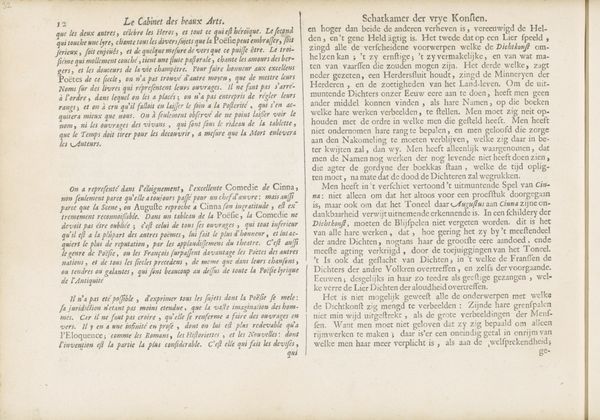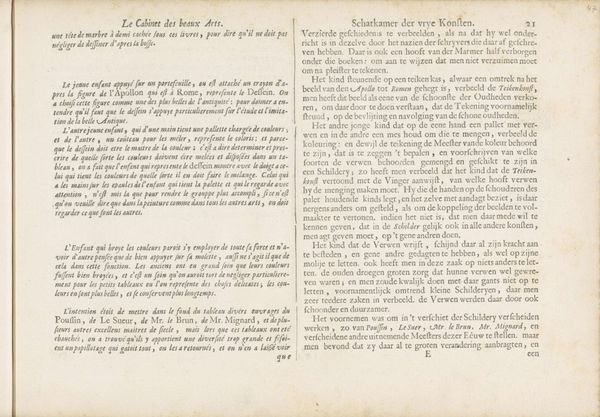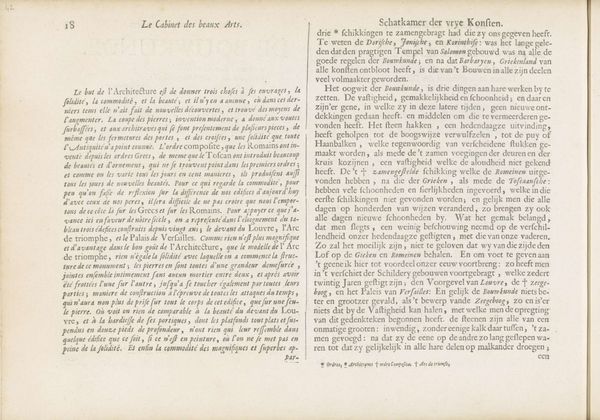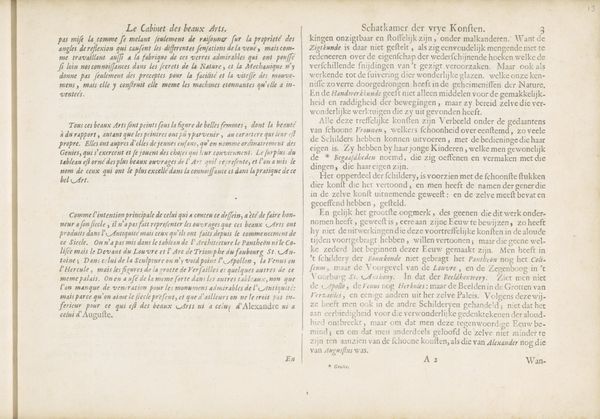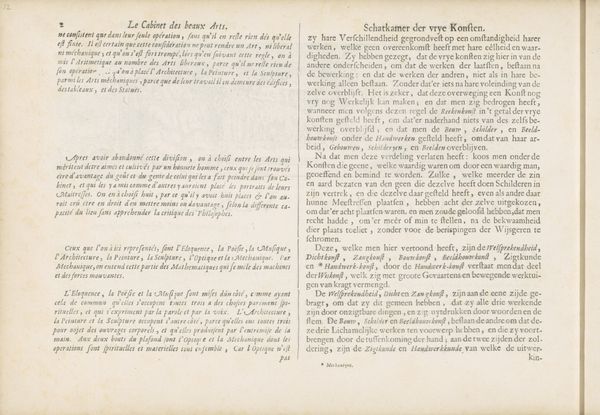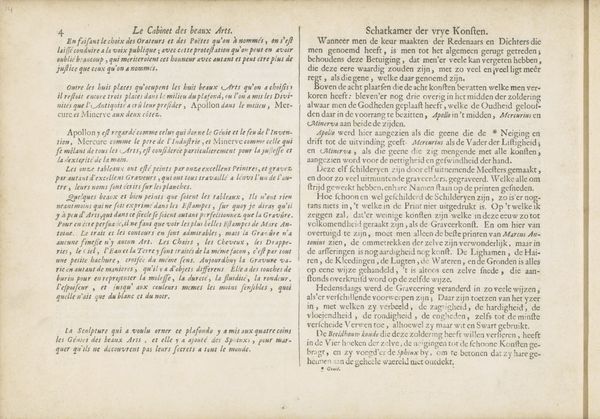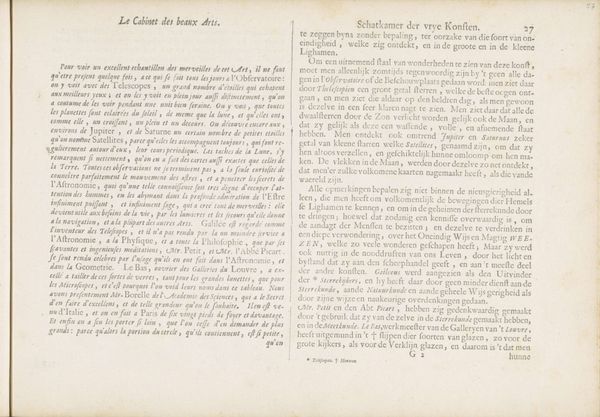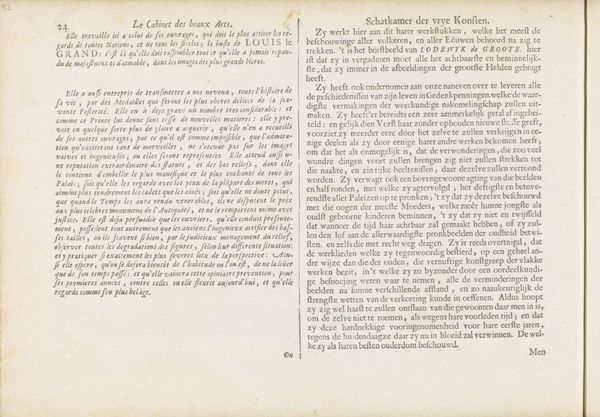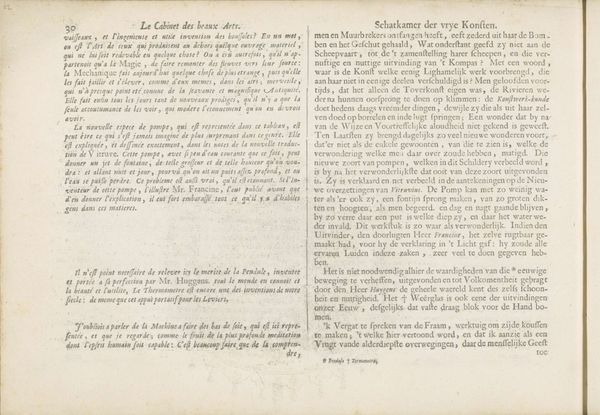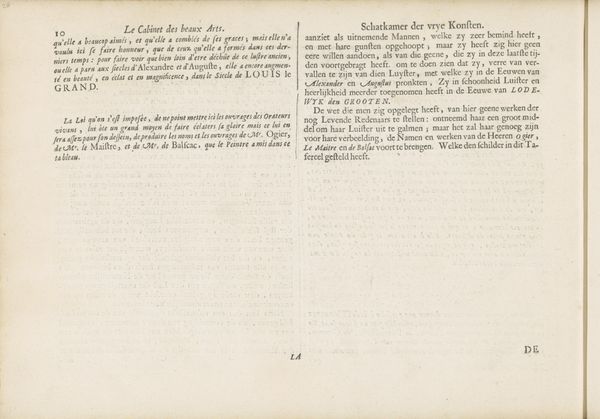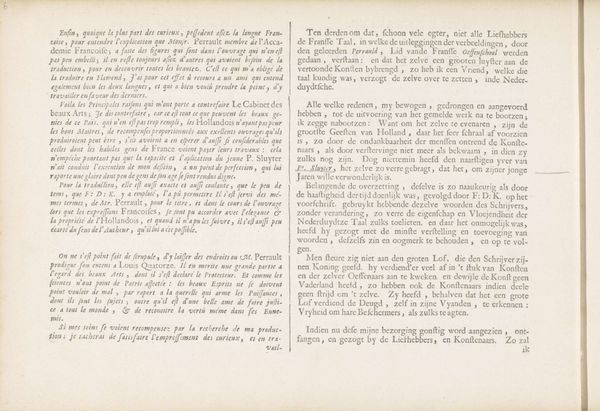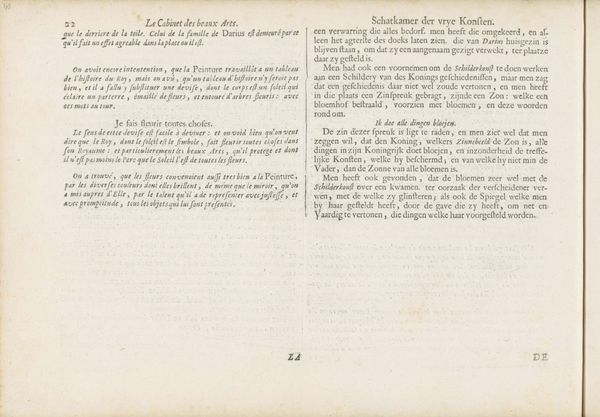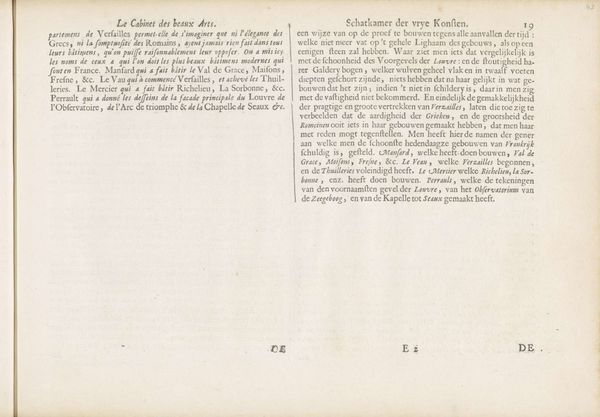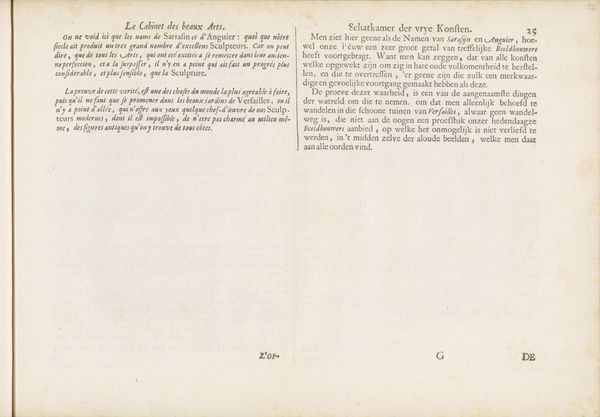
print, typography
#
baroque
# print
#
typography
Dimensions: height 219 mm, width 308 mm
Copyright: Rijks Museum: Open Domain
Curator: This spread from 1693, simply titled "Tekstblad over de Muziek," or "Text Sheet on Music" by Charles Perrault showcases a fascinating period of reflection on music. Printed with typography, its layout and textual density already speak volumes about the era. Editor: The pages certainly look academic—dry, even. A stark contrast to the vibrant world of music it tries to describe, wouldn’t you agree? All that text seems so...serious. Curator: That "seriousness" hints at the cultural weight music held, and continues to hold. Notice how Perrault positions modern musical forms against the backdrop of antiquity, trying to give some weight to the argument being put forward about innovation and imitation. He's essentially exploring the iconography of music, its presence in society, and the symbolic load it carries. Editor: Interesting! So, rather than taking the classical versus modern as some tired dichotomy, you are looking at the sheet as a statement that explores identity, essentially trying to establish what’s the foundation of culture and continuity by highlighting a supposed conflict. I also read an anxiety related to national identity – a need to prove superiority and a simultaneous need to relate to older, recognised forms. Curator: Absolutely, but look deeper! Perrault discusses Italian and French opera of the time, comparing and contrasting the conventions of either. It can be said that Perrault’s exploration isn’t merely an analysis but also a defense—almost a claim—for the validity of French forms, perhaps under the guise of “objectivity.” He notes with enthusiasm the fact that a performer “chaunts” a music style since childhood, which indicates how ingrained cultural norms, preferences, and identities are being reinforced across time. Editor: This text begins to feel even more vibrant when approached as social discourse that unveils the author’s aspirations as he crafts history! Curator: Exactly. For me, this "Tekstblad" offers more than just music history. It holds a snapshot of cultural pride. Editor: For me, it feels like an anxious justification of national identity being performed as “art criticism”.
Comments
No comments
Be the first to comment and join the conversation on the ultimate creative platform.
